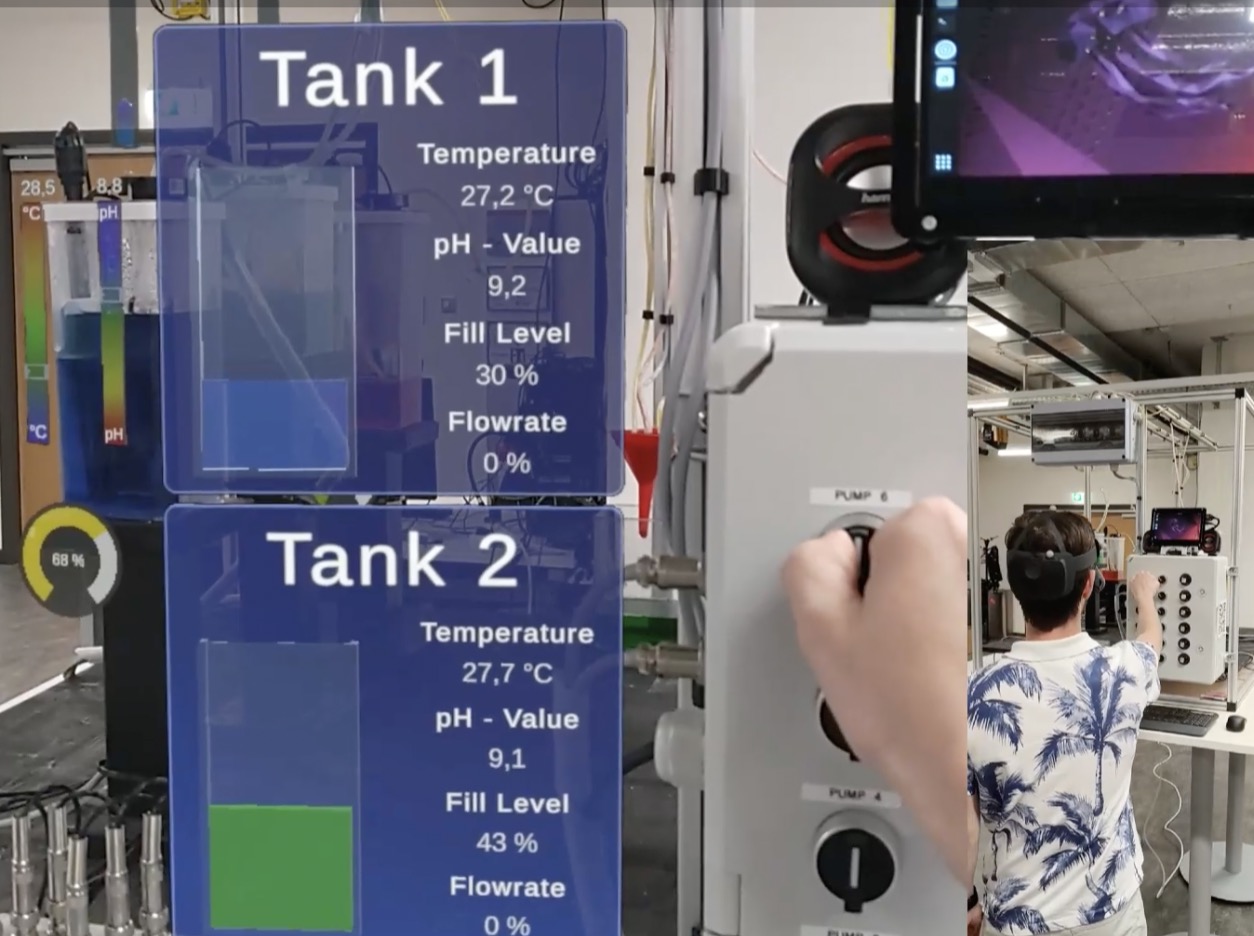- ANYbotics Anymal
- Unitree Aliengo
- Unitree Z1 ARM
- Unitree G1 Humanoid Robot
- TeslaSuit S,M,L
- Vicon Fullbody Mocap and Object Tracking System:
- Omnifinity Omnideck
- HoloLens x 4
- HTC Vive, Manus VR
- HP Omnicept
Infrastructure

Infrastructure

Book This Lab
The Immersive Computing Lab at the Human-Centered Computing (HCC) Group of Graz University of Technology focuses on advancing human-centered AI and immersive technologies that seamlessly blend the physical and digital worlds. Our mission is to develop the next generation of AR/VR computing platforms that enhance human capabilities, enable deep and meaningful remote interactions, and empower individuals to operate in complex, digitally-augmented environments.
Our vision is to create immersive systems that redefine collaboration, learning, and telepresence, bridging distances through cutting-edge virtual and robotic interfaces. We aim to augment human perception and action in remote or hazardous environments while ensuring that digital experiences remain intuitive, natural, and socially engaging.

Merging VR, AI, and robotics to create realistic telepresence experiences for work, training, and social interactions.
Developing digital twins, mixed reality training, and simulation environments for fields such as mining, manufacturing, and healthcare.
Investigating how immersive technologies influence human cognition, behavior, and neural activity through collaborations with KFU using VR-integrated MRI studies.
Exploring adaptive AI systems that enhance human-machine collaboration in extended reality settings.
Subtle depth cues
We introduce artificial subtle cues to enhance natural depth information in VR.
Learn MoreEliciting Error Potentials in VR Flight Simulation
We studied decoding of error potentials in pupil size data and with hybrid approach combining pupil and EEG signals.
Learn MoreHuman-Centered Computing Labs: Infrastructure for Telepresence
The infrastructure comprises technologies to develop and study remote work, collaboration, and teleoperation in general with the focus on providing the closest physical experience to being physically present. It is unique in that it comprises complete solutions:
This lab is partially funded by the Austrian Federal Ministry of Education, Science and Research through the HCC Telepresence with Robots joint infrastructure lab.
Learn MoreThis lab is partially funded by the Austrian Federal Ministry of Education, Science and Research through the HCC Telepresence with Robots joint infrastructure lab.
Multiple groups led by world-class renown researchers collaborate with us at the Immersive Computing Lab:
Interested in our research or want to collaborate? Reach out to us and join our mission to redefine how we perceive and experience reality.
Get in Touch